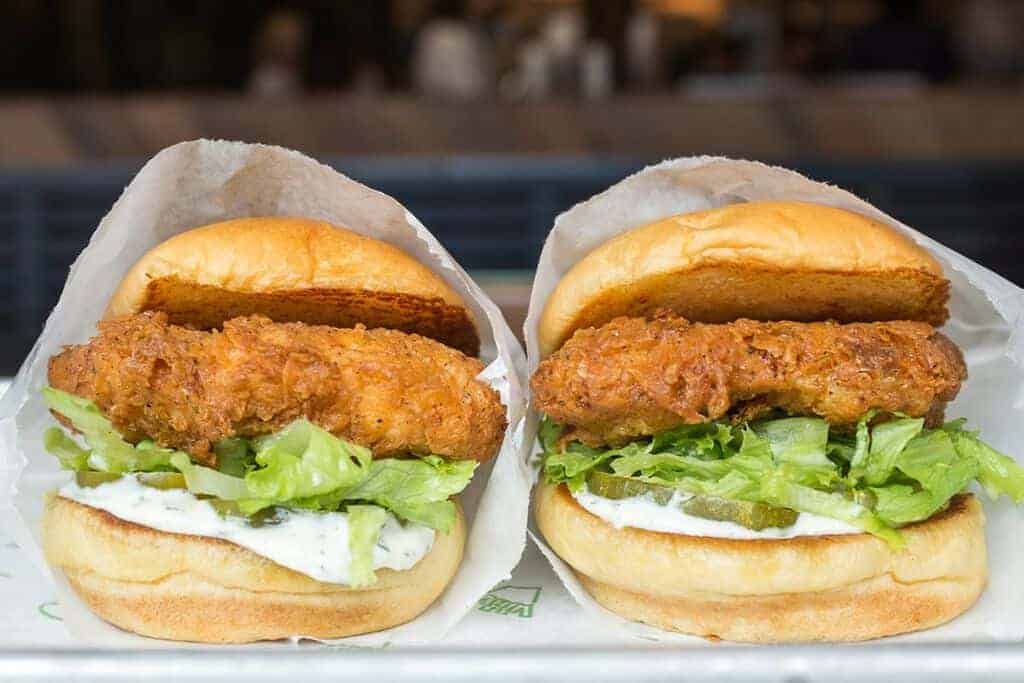

John Glassock bass guitar (joined in 1970)Ĭhicken Shack evolved from a Stourbridge based band called "Sounds Of Blue" who were performing in the West Midlands area by 1964. Paul Raymond piano, organ (joined in 1969) It is soulful but in a British way reserved and devoid of vocal theatrics, a trap that some female soul singers fall into when they sing lyrics concerning being ditched by their man.Andy Silvester bass guitar (left in 1971)Ĭhristine Perfect (McVie) vocal, piano (left in 1969) Still, those 60s songs have their charm, and her delivery of I’d Rather Be Blind is one of the best in her career.
Chicken shack mac#
Indeed the songs she later wrote for Fleetwood Mac such as Songbird, Oh Daddy, Brown Eyes and the mega hits Over My Head, Say You Love Me, Don’t Stop and You Make Loving Fun are all great songs. McVie considers her writing with Fleetwood Mac much more mature than the songs she wrote for Chicken Shack and her first solo album.


A few months later she joined Fleetwood Mac and the rest is history. A year later she won the award again for her solo album. She was also awarded the title of having one of the top ten pairs of legs in all of Britain. Later that year she won the Melody Maker Award for best female vocalist for her record with Chicken Shack. In the autumn of 1969 she was persuaded by Mike Vernon to record tracks for a solo album, in which she performed a different version of I’d Rather Go Blind. Soon after Chicken Shack’s single release Christine Perfect (now McVie) left the band, but she did not stay retired long. The horn section on I’d Rather Be Blind was arranged by Terry Noonan who also wrote the wonderful string arrangement for Fleetwood Mac’s single Need Your Love So Bad. Ross recorded all of Fleetwoood Mac’s early albums, including the single Albatross, as well as The Who’s Happy Jack and I Can See For Miles. The single was recorded at CBS studio on New Bond Street in London, ran by engineer Mike Ross. Musicians on that single were Christine Perfect (Organ, Vocals), Stan Webb (Guitar), Andy Sylvester (Bass Guitar, Organ Bass Pedals) and Dave Bidwell (Drums). In February 1969 Chicken Shack went into the studio to record their version of I’d Rather Get Be Blind. But before that she recorded with Chicken Shack the band’s most successful single, one that climbed to number 17 on the charts on Jun 14, 1969. Wonderful in August 1968, Perfect married John McVie and eventually left Chicken Shack with the intent of becoming a housewife. You can hear a spirited piano accompaniment she contributed to Rollin’ Man.įollowing the release of Mr. Wonderful, the band’s second album from 1968. The two bands recorded their albums for the Blue Horizon label and shared the same manager and producer, the label’s founder Mike Vernon.Ĭhristine Perfect loved the sound of Fleetwood Mac and came to see them playing live gigs when she had the opportunity. Her association with the band also included guesting on piano on Mr. This was Fleetwood Mac’s first incarnation, and they didn’t even have one of the band’s namesakes yet, as John McVie was reluctant to leave his steady position at John Mayall’s group. A small sample of the participating artists included Pink Floyd, Yusef Lateef, Small Faces, The Move, The Pentangle, Cream and Jeff Beck. Chicken Shack were the new kids on the block and acted as the opening act for Fleetwood Mac who had better audience recognition due to its members work with John Mayall. The bands first met at the Windsor National Jazz and Blues Festival in 1967, a three-day outdoor event with a lineup that you can only drool over. Ken? with Get Like You Used to Be and A Woman Is the Blues, both of them co-written with Stan Webb.Ĭhicken Shack had strong ties to Fleetwood Mac in the late 60s. On the band’s 1968 debut album 40 Blue Fingers, Freshly Packed and Ready to Serve, she composed and sang When the Train Comes BackĪnd You Ain’t No Good. Two more contributions followed with the next album, O.K. While this was not her main focus at the time, Christine Perfect contributed a number of songs to Chicken Shack’s repertoire. Stan Webb bought me a Freddie King album… and that was the beginning of my absolute love for the blues.” Perfect was listening intently to Sonny Thompson, the legendary pianist who played and co-wrote many songs with blues guitarist and singer Freddie King. She remembers: “I didn’t have a clue as to what to do on piano. While switching to piano was not a problem for her, playing blues with the instrument she began to study as a child was a different story. Christine Perfect’s story is unique, as she was maybe the only female musician in the emerging British blues movement of the mid to late 60s.


 0 kommentar(er)
0 kommentar(er)
